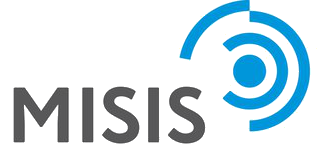December 22, 2016
The course aims to help NUST “MISiS” students, researchers, and faculty members improve their academic writing skills in Russian. The course will take place at NUST «MISIS» and be taught in Russian. Focus: The course is aimed at developing awareness of the key issues of academic literacy, which underlies the international requirements to publishing scientific and academic texts. It will focus on methods and techniques used in rhetoric and composition, the metalinguistic nature of which enables Russian academic writers to apply them in both languages, thus enhancing academic literacy of both national and international publications.
Duration: 16 ac.h.

Instructor: Irina Korotkina, PhD (Cand.Sci. in Education) Dean of Interdisciplinary Department of English, Moscow School of Social and Economic Sciences; Assoc. Prof., School of Public Policy, Russian Presidential Academy of National Economy, Moscow, Russia. Author of Academic Writing: Process, Product and Practice (2015, in Russ.), English for Public Policy, Administration and Management (2015), Academic Vocabulary for Social Sciences (2016) and over 40 academic articles on academic writing methodology in Russian and English, promoting academic writing in Russia, and teaching English for academic and professional purposes. She actively participates in the work of two groups, one of which works on the issues of EAP in higher education, and the other on establishing the Consortium of academic writing centers in Russia. She gives regular seminars and masterclasses in Russian universities on academic writing and the above issues in both languages.
Course Outline:
Session 1. Academic Literacy in 3D: Key components and assessment principles. Academic writing from a personal process to a public product: understanding purpose and audience. What makes a good academic text? Criteria for assessment and self-assessment. Academic writing in 3D: the cultural, operational and critical dimension. Technologies for approaching the topic: from freewriting to looping, from brainstrorming to clustering, and from cubing to procedures. Analyzing the differences between the English and Russian academic traditions.
Session 2. Keeping the focus. Understanding the text as an intellectual procedure. Focusing on the main ideas. Applying procedural verbs to formulating a strong thesis. Fact and opinions. Problems of Russian modality. Developing an argument. Analytical framework: the structural model of argument and its elements (qualifier, warrant, backing, rebuttal and claim). The three types of claims: designative, evaluative and advocative. Selection and evaluation of sources. Summarizing ideas of others. Avoiding plagiarism: paraphrasing, referencing and quoting.
Session 3. Organizing an academic text. Non-linear approaches to organizing a text: employing the triad principle, mind-mapping and outlining. Writing a good paragraph. Topic sentences, details and concluding sentences. Cohesion and coherence. The logical organization of a text. Introductions and conclusions. The key elements of an academic introduction and conclusion. Analyzing differences and connections between an introduction and conclusion. The ‘skeleton’ structure of a text (introduction – topic sentences – conclusion). An outlook on formats. Analyzing typical mistakes in Russian academic texts.
Session 4. Mechanics: the syntax we never learned. Sentence structure and punctuation: focus on logic. The standard sentence model (subject – verb – object) and using phrases as building blocks. The power of the verb and pitfalls of the Russian syntactic ‘freedom’. Managing the main and extra information. Transition signals, repetition of key words and parallel structures. The wise use of commas and full stops. Avoiding fragments, chains and run-on sentences. Traps of nominalization. Keeping balance between text and graphics.


